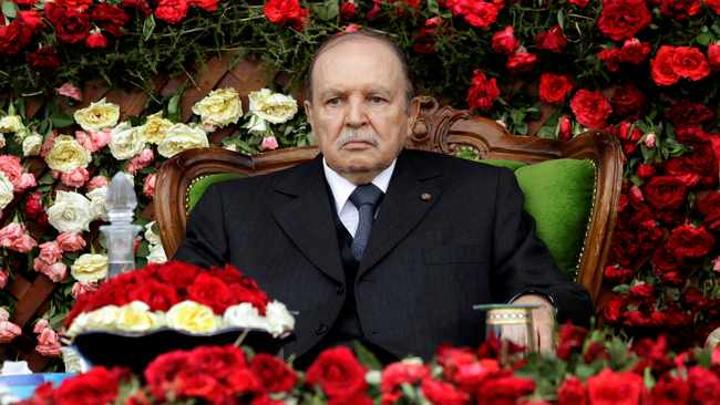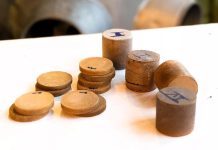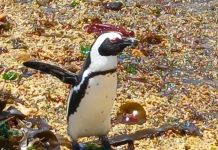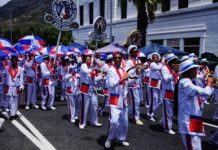Africa-Press – South-Africa. OPINION: President Bouteflika was from the generation that we can all agree followed in the footsteps of the founding fathers of the liberation struggle – the likes of Ahmed Ben Bella, Kwame Nkrumah and Julius Nyerere, writes Molly Dhlamini.
After hearing of the passing of President Abdelaziz Bouteflika on September 17, I could not help but to immediately reflect on his leadership, influence, resolve and decisiveness.
Of course, this character cannot be divorced from that of the country itself, the People’s Democratic Republic of Algeria. This is one country that was unwavering in its resolve to fight colonialism and apartheid. It is also a country that has kept the spirit of pan-Africanism alive up until today.
In the recent past this has been evident in its quiet diplomacy by cancelling the debts of some African countries as a form of solidarity and unity. It is no wonder that under his leadership as president, Algeria has continued with the institutional and material support for the self-determination of the Sahrawis of Western Sahara. This support has been been consistent and embedded in the body politic of the country, and among its people.
The support for the liberation of the last colony in Africa is what the presidency of Bouteflika was so committed to, and the refugee camps of Tindouf, that house a sizeable population of the Sahrawis, is able to connect to the world through Algeria, having its government legitimised. This is the practical solidarity that Bouteflika’s presidency was able to sustain. President Bouteflika was also vocal in Algeria’s unfaltering support for the legitimate struggle of the Palestinian people in their struggle for self-determination.
With an illustrious political career and activism that started when he was 19 years old, joining the National Liberation Army (ALN), the armed wing of the National Liberation Front (FLN), he was to become a minister of youth and sport at the age of 25 when the revolution against the French was won.
President Bouteflika’s visible role in the fight against apartheid was evident in 1974, when he was the minister of foreign affairs under the presidency of Ahmed Ben Bella.
As the the president of the United Nations General Assembly in the period 1974-1975, he played a decisive role in the suspension of the apartheid regime’s representatives, which denied them accreditation.
This was an unprecedented decision that went through despite the opposition of some key members of the UN Security Council.
In the same sitting, in another unprecedented move, he invited the Palestinian leader Yasser Arafat to address the world body. During his presidency, the UN General Assembly remained focused on a critical resolution on the “Implementation of the Declaration on the Granting of Independence to Colonial Countries and Peoples” that had been adopted in 1960.
Prior to this period, Algeria housed freedom fighters of critical importance like Che Guevara, and the father of our democracy Nelson Mandela, who received his first military training in Algeria in the 1960s. At the time of ending their own struggle, the FNL had graciously received the late Jonas Matlou an emissary of the ANC who paved the way for the solid relations that eventually developed between the two liberation movements.
A free Algeria embraced the ANC, permitting the opening of an ANC office there which was run by Robert Resha and Johnny Makhathini. As recalled by General Keith Mokoape, a former commander of the ANC’s military wing, Umkhonto we Sizwe, in the summer of July 1988 the ANC president OR Tambo deployed six MK soldiers to Tindouf in Western Sahara who were given passage by Algeria. They were to be deployed alongside Polisario Front soldiers who were at the time fighting against Morocco that had illegally occupied its territory.
Around the same period, Algeria was instrumental in helping transport military equipment that was captured from the Moroccans which had been donated by the Apartheid regime to Morocco.
These were transported through the port of Algiers to the port of Luanda in Angola, to be donated to the South West Africa People’s Organisation (SWAPO), and ANC camps in Angola. Algeria was among the first African countries to offer this kind of material support to freedom fighters.
President Bouteflika was to later be instrumental in collaborating with president Mbeki and president Obasanjo in the establishment of NEPAD. Together they were to be joined by two presidents – president Hosni Mubarak of Egypt and president Abdoulaye Wade of Senegal. Later they would all be joined by president Amadou Toumani Touré of Mali, and prime minister Meles Zenawi of Ethiopia on other key milestones of the African Union.
President Bouteflika was from the generation that we can all agree followed in the footsteps of the founding fathers of the liberation struggle – the likes of Ahmed Ben Bella, Kwame Nkrumah and Julius Nyerere. President Bouteflika kept that revolutionary fervour alive and will be fondly remembered. The progressive forces must keep fighting for the self-determination of the Sahrawis of Western Sahara and self-determination for the people of Palestine.
* Molly Dhlamini is from the South African Chapter of the Sahrawi Solidarity Forum.
** The views expressed here are not necessarily those of IOL and Independent Media.
Insider






